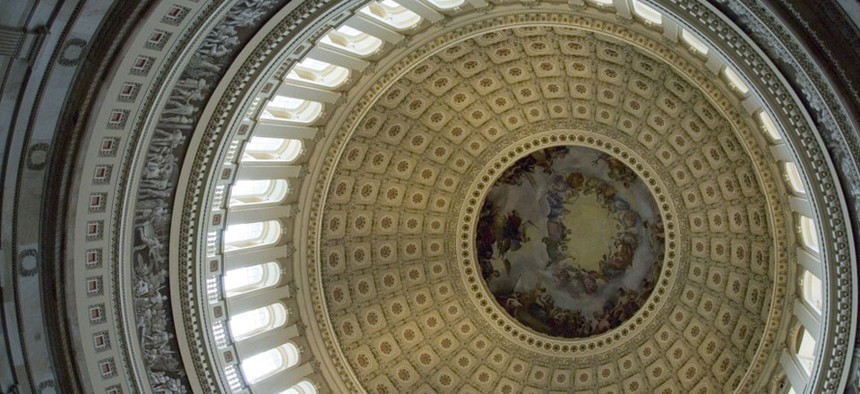
Condor 36/Shutterstock.com
Congress Still Has No Idea How Much the NSA Spies on Americans
Adequate oversight is impossible when even diligent members of the Senate Intelligence Committee can't get basic facts about surveillance.
The biggest lie Americans are told about the NSA is that it is subject to "strict oversight." Listening to President Obama, Senator Dianne Feinstein, or most any high-ranking official in the national-security bureaucracy, one gets the impression that the Senate and House intelligence committees are keeping careful tabs on the most technologically empowered spy agency in human history.
The truth is that Congress is alarmingly ignorant about NSA spying. It's not all the national-security state's fault. There are too many issues for every legislator to master them all; surveillance policy is a particularly complicated; and national security is an area many in Congress undermine checks and balances by deferring to the president.
Yet even the most diligent, knowledgeable members of the Senate Intelligence Committee consistently lack basic information that's plainly needed for adequate oversight. No one who assesses the relevant evidence can credibly deny this.
Take Senator Ron Wyden. No one could dispute that the Oregon Democrat zealously seeks information about America's intelligence agencies. No one disputes that he is far more knowledgeable about the intricacies of surveillance policy than the typical member of Congress. So it is instructive to reflect on what he hasn't known.
Though a member of the intelligence committee beginning in 2001, he didn't know about the Bush administration's warrantless-wiretapping program until The New York Times reported on it in 2005 (after holding the story for more than a year). "He was surprised again when, six months later, USA Today published a different story revealing for the first time that the NSA was secretly collecting the phone call records of tens of millions of Americans, records that US telecoms were willingly handing over without a warrant," Kim Zetter notes at Wired.
These two examples are sufficient to show that during the Bush years he was denied information of the utmost relevance to an overseer. And now under President Obama there are equally clear examples of information he requires but is denied.
One example concerns Executive Order 12333, one of the primary legal authorities the NSA cites to justify some of its overseas intelligence gathering.What kind of surveillance does it enable in practice? How many Americans have their privacy compromised by spying carried out under that order? Congress has no clue.
“I’m not sure we’re at the bottom or close to it," Wyden told Wired.
Some context is needed to grasp the significance. In response to Edward Snowden's revelations about the phone dragnet, legislators are considering steps to better protect the private communications of Americans. But Congress cannot strike whatever balance it desires between surveillance and privacy if members don't even know what the spy agency does under legal cover of executive orders. Wyden suspects that the White House and intelligence community "agreed to halt the phone records collection program, in the wake of intense criticism, only because the spy agency has other tricks to get the same data."
Is he correct? The fact that one of the most interested members of the Senate Intelligence Committee doesn't know is a glaring problem. On the whole, American legislators have only the vaguest idea what the NSA does under Executive Order 12333, and this ignorance is a direct impediment to sound policymaking.
It makes adequate oversight impossible, so the conceit that the NSA is subject to "strict oversight" is absurd. Yet even as Senate Intelligence Committee members are kept ignorant of these vital facts, Carrie Cordero, director of national security studies at Georgetown University Law Center, writes as if the intelligence community now errs on the side of transparency. She urges these officials to tell Americans more about the terrorist menace. Any accurate information is useful, but how about first giving Senate overseers all the facts they need as overseers?
Suppressing this information neuters Congress.
Legislators preparing to vote on the USA Freedom Act conspicuously lack important facts needed to assess the adequacy and wisdom of the bill. Why do so few care?
(Image via Condor 36/Shutterstock.com)
NEXT STORY: Play of the Day: An Honest Koch Industries Ad?







